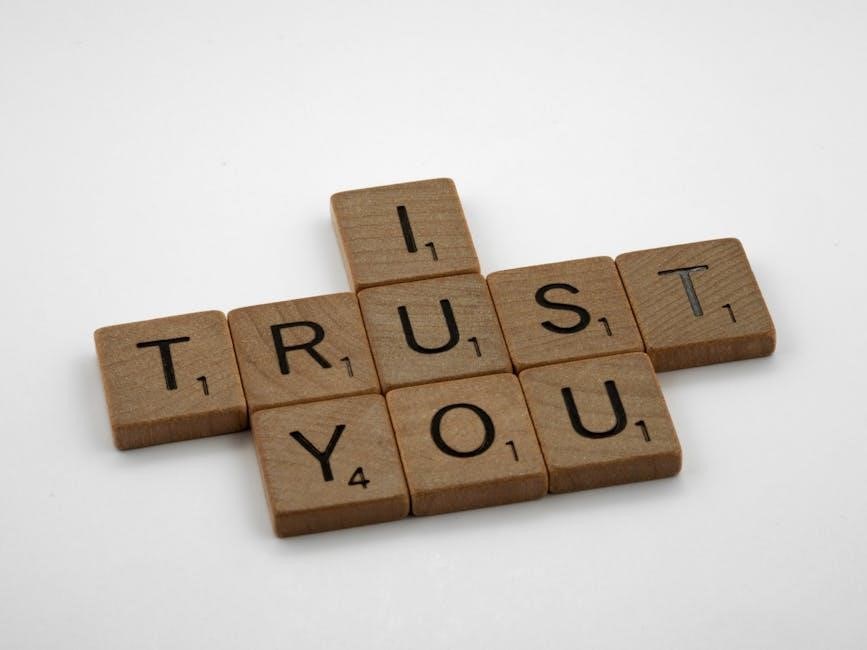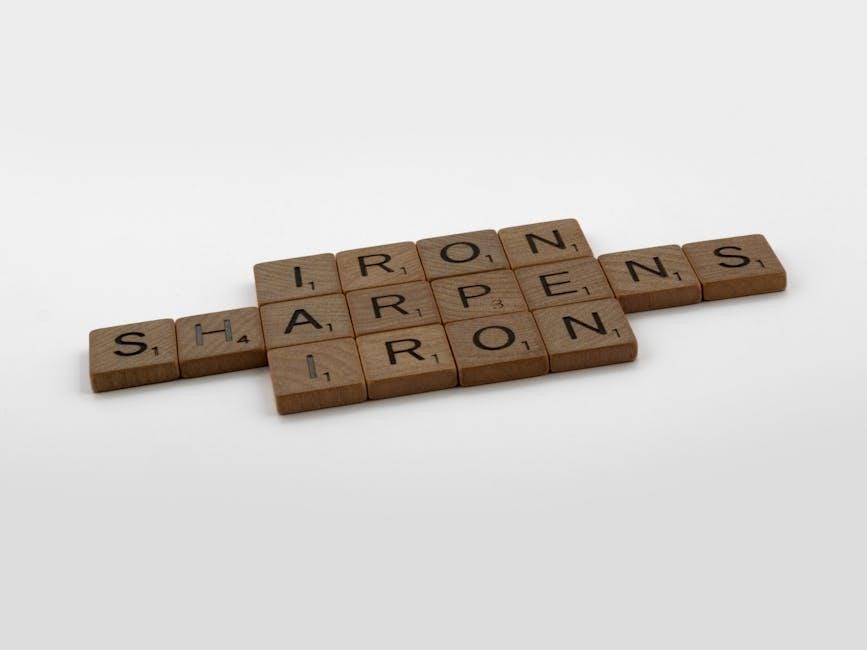
Importance of Vocabulary Development in 3rd Grade
Developing vocabulary in 3rd grade is crucial for academic success. It enhances reading comprehension‚ communication skills‚ and critical thinking. A strong foundation in vocabulary helps students express ideas clearly and understand complex texts‚ fostering confidence and a love for learning.
1.1 Why Vocabulary Matters for Young Learners
Vocabulary is the backbone of language learning‚ enabling students to understand and communicate effectively. For 3rd graders‚ expanding their word bank is essential for decoding texts‚ grasping concepts‚ and expressing ideas. A robust vocabulary fosters confidence‚ improves reading fluency‚ and enhances overall academic performance‚ laying a solid foundation for future learning and success.
1.2 The Role of Vocabulary in Reading Comprehension and Communication
Vocabulary plays a vital role in reading comprehension and effective communication. Understanding word meanings helps students decode texts‚ interpret stories‚ and grasp complex ideas. A strong vocabulary enables clear expression of thoughts‚ fostering better communication skills. This dual impact ensures students excel academically and socially‚ making vocabulary development a cornerstone of 3rd-grade education.

Essential 3rd Grade Vocabulary Words List
A comprehensive list of 3rd-grade vocabulary words includes high-frequency terms like “afraid‚” “especially‚” and “lovable.” These words‚ found in PDF workbooks‚ are vital for reading and communication skills.
2.1 Tier 1 and Tier 2 Vocabulary Words Explained
Tier are basic‚ frequently used terms like “afraid” and “especially‚” essential for daily communication. Tier ‚ such as “lovable” and “agreeable‚” are more complex but still common in academic texts. These categories help teachers focus on words that are foundational versus those that require deeper instruction‚ ensuring students build a robust vocabulary for reading and communication success.

2.2 Examples of High-Frequency Vocabulary Words for 3rd Graders
High-frequency words for 3rd graders include “afraid‚” “especially‚” “lovable‚” “they’re‚” “almost‚” “everybody‚” “money‚” “think‚” “also‚” “everything‚” “morning‚” “thought‚” “always‚” “except‚” “myself‚” and “misbehave.” These words are selected for their common occurrence in basal readers and academic texts‚ providing students with a strong foundation for reading comprehension and effective communication.
Teaching Strategies for 3rd Grade Vocabulary
Engage students with interactive activities‚ word games‚ and flashcards. Use real-life applications to make learning fun and relatable‚ reinforcing retention and understanding of new vocabulary.
3.1 Interactive Activities to Enhance Vocabulary Retention
Interactive activities like word games‚ crosswords‚ and matching exercises make learning fun. Incorporate real-life scenarios and group projects to help students apply vocabulary contextually‚ improving retention and understanding through engaging‚ hands-on experiences.
3.2 Using Flashcards and Word Games Effectively
Flashcards and word games are powerful tools for engaging students. Use high-frequency vocabulary lists to create flashcards‚ and incorporate games like matching or crossword puzzles. These activities make learning interactive and fun‚ reinforcing retention through repetition and contextual application. Many PDF workbooks include such resources‚ offering a structured approach to effective vocabulary practice.

Assessing Vocabulary Knowledge
Regular quizzes and worksheets are effective for assessing vocabulary understanding. These tools help identify learning gaps and track progress‚ ensuring students grasp word meanings and usage correctly.
4.1 Quizzes and Worksheets for Vocabulary Assessment
Quizzes and worksheets are practical tools for assessing vocabulary knowledge. They help identify gaps in understanding and track progress. Worksheets often include matching games‚ fill-in-the-blank exercises‚ and multiple-choice questions. Quizzes can be weekly or bi-weekly‚ focusing on high-frequency words. These methods ensure students grasp word meanings and usage‚ preparing them for more complex texts and discussions. Regular assessments guide targeted instruction and reinforcement.
4.2 Incorporating Projects and Presentations
Incorporating projects and presentations into vocabulary assessment allows students to demonstrate understanding in creative ways. These activities enable students to use words in context‚ fostering deeper comprehension and retention. Group projects encourage collaboration and application of vocabulary‚ while presentations help students articulate meanings confidently. Such methods provide a dynamic alternative to traditional quizzes‚ promoting engagement and critical thinking.

Resources for 3rd Grade Vocabulary Building
Utilize PDF workbooks‚ online tools‚ and interactive apps to enhance vocabulary learning. These resources provide engaging exercises‚ word lists‚ and activities tailored for 3rd graders.
5.1 Recommended PDF Workbooks and Worksheets
Enhance vocabulary learning with structured PDF workbooks like ” Kids Need to Read” and “240 Vocabulary Words Kids Need to Know.” These resources offer high-frequency word lists‚ definitions‚ and interactive exercises. Worksheets from Scholastic Teaching Resources provide engaging activities‚ ensuring students grasp word meanings and usage. These tools are designed to align with curriculum standards and support effective vocabulary development in 3rd graders.
5.2 Online Tools and Apps for Interactive Learning
Engage students with online platforms like Vocabulary Spelling Bee and educational apps such as Word Hippo. These tools provide interactive games‚ quizzes‚ and exercises tailored for 3rd graders. They incorporate high-frequency vocabulary lists and offer personalized learning experiences. Apps like Kahoot! and Quizlet further enhance retention through fun‚ competitive activities. These digital resources make vocabulary learning dynamic and accessible for young learners.

Age-Appropriate Definitions and Examples
Simple language and relatable examples help 3rd graders grasp complex words. Resources like workbooks and online tools provide clear definitions and everyday examples to build understanding effectively.
6.1 Simplifying Complex Words for Young Students
Vocabulary development in 3rd grade involves breaking down complicated words into understandable parts. Using synonyms‚ visual aids‚ and example sentences helps students grasp meanings. Tools like flashcards and workbooks provide clear‚ age-appropriate definitions‚ making learning engaging and effective.
6.2 Using Visual Aids to Reinforce Word Meanings
Visual aids like images‚ diagrams‚ and videos enhance vocabulary learning for 3rd graders. Picture dictionaries‚ charts‚ and flashcards with illustrations help students connect words to meanings. Interactive PDFs and apps with visual cues make learning engaging. These tools improve retention and make abstract concepts more tangible for young learners‚ fostering a deeper understanding of vocabulary in a fun and accessible way.

Connecting Vocabulary to Real-Life Scenarios
Linking vocabulary to real-life examples helps students see practical applications. Using words in relatable contexts‚ like home or school‚ makes learning meaningful and memorable for young learners.
7.1 Making Vocabulary Learning Fun and Relatable
Engaging activities like word games‚ storytelling‚ and role-playing make vocabulary learning enjoyable. Relatable examples from everyday life help students connect words to familiar experiences‚ enhancing retention and understanding. Interactive approaches ensure that learning is both effective and entertaining for young minds‚ fostering a lifelong love of language exploration and practical application in real-world scenarios.
7.2 Encouraging Critical Thinking Through Word Applications
Applying vocabulary in real-life scenarios fosters critical thinking and deeper understanding. Activities like creating stories‚ solving problems‚ or discussing word meanings encourage students to think creatively and make connections. This approach helps students analyze contexts‚ synthesize information‚ and apply words in meaningful ways‚ preparing them for advanced learning and practical communication in various situations.
The Role of Parents in Vocabulary Development
Parents play a vital role in enriching their child’s vocabulary. Engaging in daily conversations‚ reading together‚ and using flashcards can foster a love for learning and improve retention.
8.1 How Parents Can Support Vocabulary Learning at Home
Parents can support vocabulary learning by incorporating daily reading‚ using flashcards‚ and discussing word meanings. Creating a language-rich environment with conversations and real-life applications helps reinforce new words effectively.
8.2 Creating a Language-Rich Environment
Creating a language-rich environment involves exposing children to diverse vocabulary through reading‚ discussions‚ and interactive activities. Parents can display word charts‚ encourage conversations‚ and use visual aids to reinforce learning. Engaging in word games and incorporating new words into daily routines fosters a culture of language exploration‚ enhancing comprehension and a lifelong love for learning.
Common Challenges in Teaching Vocabulary
Teaching vocabulary presents challenges like varying learning paces‚ engaging students‚ and making abstract words relatable. Strategies such as interactive activities and real-life examples help overcome these obstacles effectively.
9.1 Addressing Learning Gaps in Vocabulary
Learning gaps in vocabulary can hinder academic progress. To bridge these gaps‚ educators can use targeted interventions‚ such as additional practice worksheets‚ interactive activities‚ and tiered instruction. Providing definitions and examples in relatable contexts helps students grasp concepts. Regular assessments and personalized feedback also ensure that each student’s needs are met effectively. Consistent reinforcement is key to closing these gaps successfully.
9.2 Motivating Students to Engage with Vocabulary
Motivating students to engage with vocabulary involves making learning interactive and enjoyable. Using games‚ puzzles‚ and real-life scenarios sparks curiosity and interest. Providing visual aids and hands-on activities helps students connect with words emotionally. Celebrating progress and offering positive reinforcement encourages participation. Making vocabulary relevant to their lives ensures students see its value and stay motivated to learn.
Mastery of 3rd grade vocabulary words is essential for lifelong language learning. By fostering a love for words‚ students build a strong academic foundation and future success.
10.1 Summarizing Key Points for Effective Vocabulary Teaching
Effective vocabulary teaching involves structured approaches‚ interactive activities‚ and real-life applications. Using visual aids‚ parental support‚ and regular assessments ensures mastery. Incorporating high-frequency words and tiered vocabulary builds a strong foundation‚ fostering lifelong learning and academic success in students.
10.2 Encouraging Lifelong Language Learning
Encouraging lifelong language learning involves fostering curiosity and enjoyment in vocabulary development. Using engaging resources‚ interactive games‚ and real-life applications helps sustain interest. Providing opportunities for creative expression and celebrating progress motivates students to continue exploring new words. This approach ensures that vocabulary growth becomes a natural and rewarding part of their educational journey and beyond.